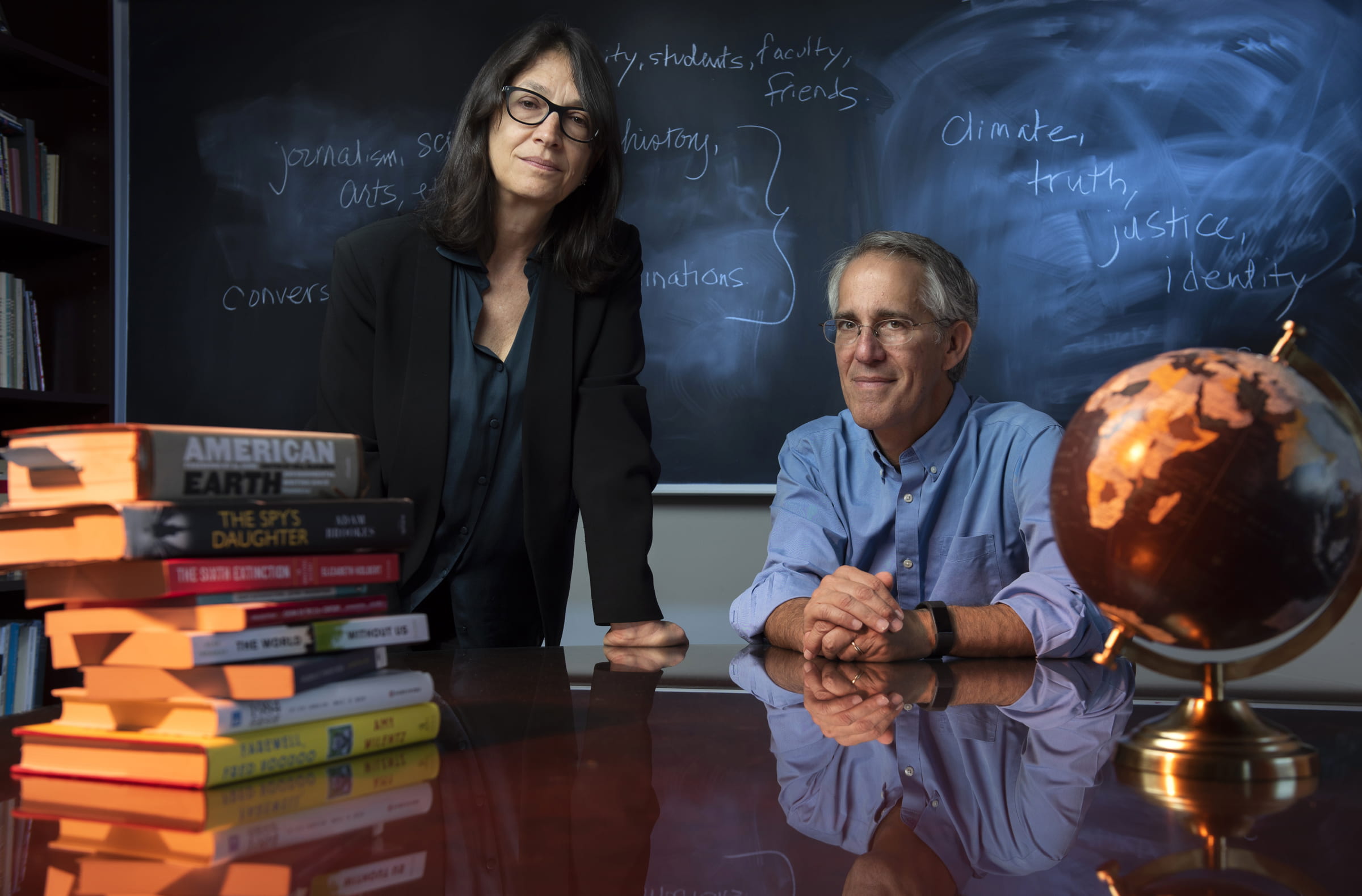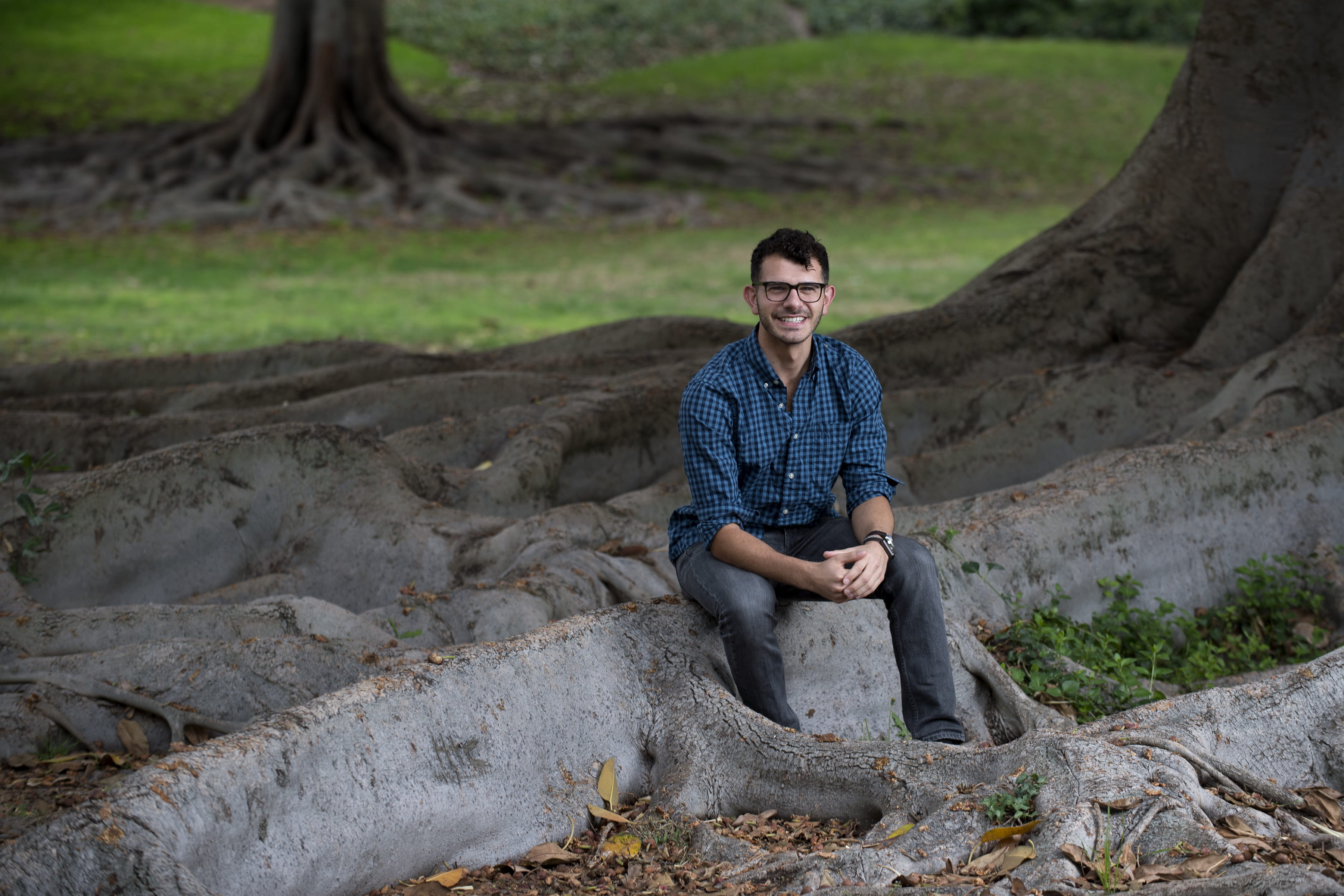Confronting climate change
Interdisciplinary experts convened on campus for two-day public conference on looming existential threat

On Friday and Saturday, Feb. 8 and 9, UCI hosted “Fire & Ice: The Shifting Narrative of Climate Change,” a conference on possibly the most critical issue of the century. Geared to the public, it featured interdisciplinary conversations about the looming threat of climate change focused on how to avert its worst consequences.
The keynote speaker was premier climate activist Bill McKibben, author of The End of Nature, and panelists included Pulitzer Prize winner Elizabeth Kolbert, author of Field Notes from a Catastrophe and The Sixth Extinction; Peter Gleick, co-founder and president emeritus of the Pacific Institute; Nathaniel Rich, a writer-at-large for The New York Times Magazine whose book Losing Earth will be published in April; and world-renowned glaciologist Eric Rignot, Donald Bren Professor and chair of Earth system science at UCI.
The conference was presented by the UCI Forum for the Academy and the Public, a collaborative project of the literary journalism program, the School of Humanities and the School of Law. It’s directed by acclaimed China scholar Jeffrey Wasserstrom, UCI Chancellor’s Professor and chair of history; and award-winning author Amy Wilentz, UCI professor of English in the literary journalism program.
By opening the academic realm to the public via an annual symposium and pop-up events, the forum sparked groundbreaking conversations about the world’s most timely subjects since 2015. “Fire & Ice” is its first scientifically focused conference.
“We try to tackle matters of urgency in all our events, which in the past have focused on issues such as freedom of speech and the future of the truth,” Wasserstrom says. “Thinking globally, though, there is just no more urgent topic than climate change, so this year’s symposium seems especially important.”
There may also be no subject better suited to an interdisciplinary approach, since its solutions must rely on various fields of study. The conference brought together the local community, scholars from the sciences and the humanities, journalists, activists, artists and faculty, who will share their perspectives and tackle the issue from every angle – inspiring a dialogue that could change the course of the Earth.
Internationally recognized scientists who study oceans, fires and glaciers talked about climate change in their fields and how to move toward a healthier environment. Hyper-industrialized countries such as China and India and their effects on the worldwide weather phenomenon were discussed, as will those nations – many in Africa – often caught up in climate change disasters.
The general focus, however, was on why it’s so hard to alter the behaviors that exacerbate the problem and the continued importance of taking action on both local and global scales. A panel of lawyers, environmentalists, economists and activists discussed specific ways in which people can live more sustainably.
“The UCI Forum for the Academy and the Public’s ‘Fire & Ice’ conference was a great example of how the humanities can catalyze productive dialogues among different disciplines so that we can, together, more effectively confront today’s grand challenges, including climate change,” says Tyrus Miller, dean of UCI’s School of Humanities.
